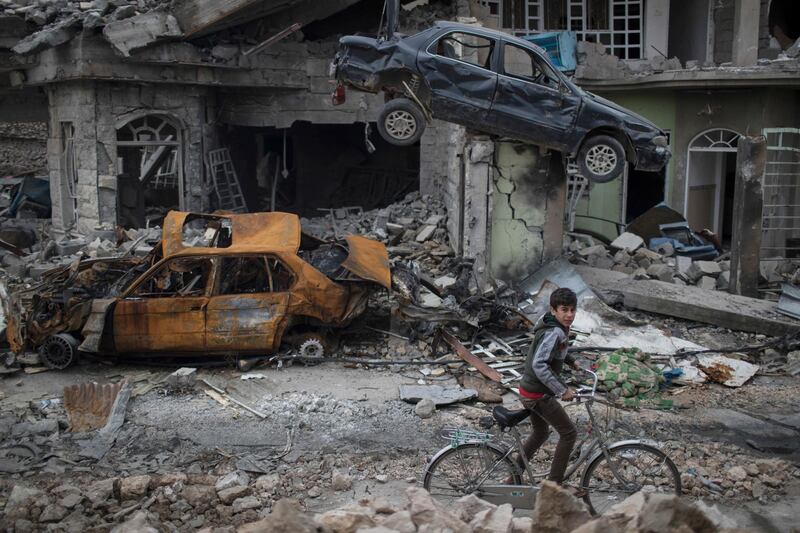Over the past few years, conflict has plagued the Middle East and while many of us regularly read news reports covering statistics on death, displacement and refugee influxes, the other consequences of war are sometimes disregarded.
Although harmful for all ages, the trauma associated with war is particularly amplified for children. Each and every child is entitled to basic rights, such as living in a peaceful and safe environment, receiving a consistent education and being provided adequate shelter. Children in war zones are deprived of these things. This, in addition to witnessing acts of terror and brutality, is a primary cause of mental health issues among young people.
Unfortunately, we still live in a society that stigmatises mental health issues. It is not unheard of to hear someone ridiculing mental illnesses and claiming they are fake. Being mindful of the suffering that refugee children undergo and noting the ignorance of the community towards alleviating such trauma stimulated the urge within me to spread awareness about the issue. I decided to do so by conducting a study on the psychological implications of war on refugee children.
I studied two groups of refugee and non-refugee children of between 9 and 17 years old, where a sample of 25 children from each group was administered, giving an overall sample of 50 children. I dedicated my study to a few key areas: tendencies towards aggressive communication, perception of the current world, hope for the future and attitude towards thinking. I chose to conduct my study by asking participants to fill in a questionnaire from which I would analyse the results and produce my research paper.
The outcomes of my study indicated that refugee children tend to exhibit a greater tendency towards aggressive communication, a darker perception of the current world, less ambition and more negative thinking than children who have had a more conventional childhood.
For the first part of my questionnaire, I researched possible tests that could give an indication of aggressive communication. I found a task called “word completion”, in which participants are given a set of incomplete letters, with the potential of forming neutral, aggressive or peaceful words. The participants are asked to complete the letters into words and their responses give an indication of aggressive communication.
I adapted this measure by using letters that can form common war-related or violent terminology and by localising them into the Arabic language. The results for this section revealed that 44 per cent of refugee children’s responses suggested aggressive communication, as opposed to only 12 per cent of non-refugee children.
For the second part of my questionnaire (perception of the current world and hope for the future), participants were assigned two drawing tasks, one depicting their view of the world today and another illustrating their dream landscape. Upon analysis, the drawings were categorised into either positive, negative or ambiguous.
For the depiction of our world, 40 per cent of non-refugee children’s drawings fell into the positive category, as compared to only 28 per cent of the refugee children’s drawings. However, there was an equal percentage of negative pictures in both groups (56 per cent). Also, one of the striking elements I observed when processing my data was the great resemblance in the topic expressed between refugee and non-refugee children in their drawings, as many illustrated dark themes of war, conflict, violence, confusion and imprisonment. All of this attests to the widespread negative impact that war has left on children’s perception of the world, both for refugee children who have witnessed and been part of the war as well as children in neighbouring countries.
A compatible pattern was observed when participants were asked to draw their dream landscape. A larger percentage of non-refugee children had hopeful depictions when compared with the work of refugee children. Another important observation was that many of the aspirations delineated in the results were associated with abolishing conflict and war, which further corroborates the influence that war has had on both refugee and non-refugee children.
For the final section of the questionnaire (attitude towards thinking), participants were given three extracts dealing with various, neutral topics. The extracts were composed of a few sentences, some of which are positive, negative or neutral (equal in terms of focus given in the text). The participants were then given three follow up sentences resembling the ones in the text and asked to choose one that best describes the extract’s main idea. The participants’ choices gave an indication of the extent to which they are positive or negative thinkers. The results indicated that refugee children tend to be more negative thinkers (44 per cent) in contrast to non-refugee children (8 per cent). Meanwhile, 44 per cent of refugee and 72 per cent of non-refugee children had positive thinking, and the remainder had neutral responses. Furthermore, this indicates that a significant portion of the refugee group demonstrated a positive approach towards thinking, although the overarching outcome was negative. Hence, it appears that despite their experiences, they still have hope and still demonstrate a degree of positive thinking.
This data highlights the need to direct more care towards children who underwent war experiences to mitigate the negative psychological effects it has left on them. This matter is of great urgency, especially considering that the society we live in is one that trivialises mental health and doesn’t really acknowledge its importance. Significant change can be brought about by providing all children with support and counselling, as well as sufficient, effective education to reinvigorate this lost generation.
Zaid Tabaza is a student at the Amman Baccalaureate School. He conducted his research over the past year and is 16 years old.





